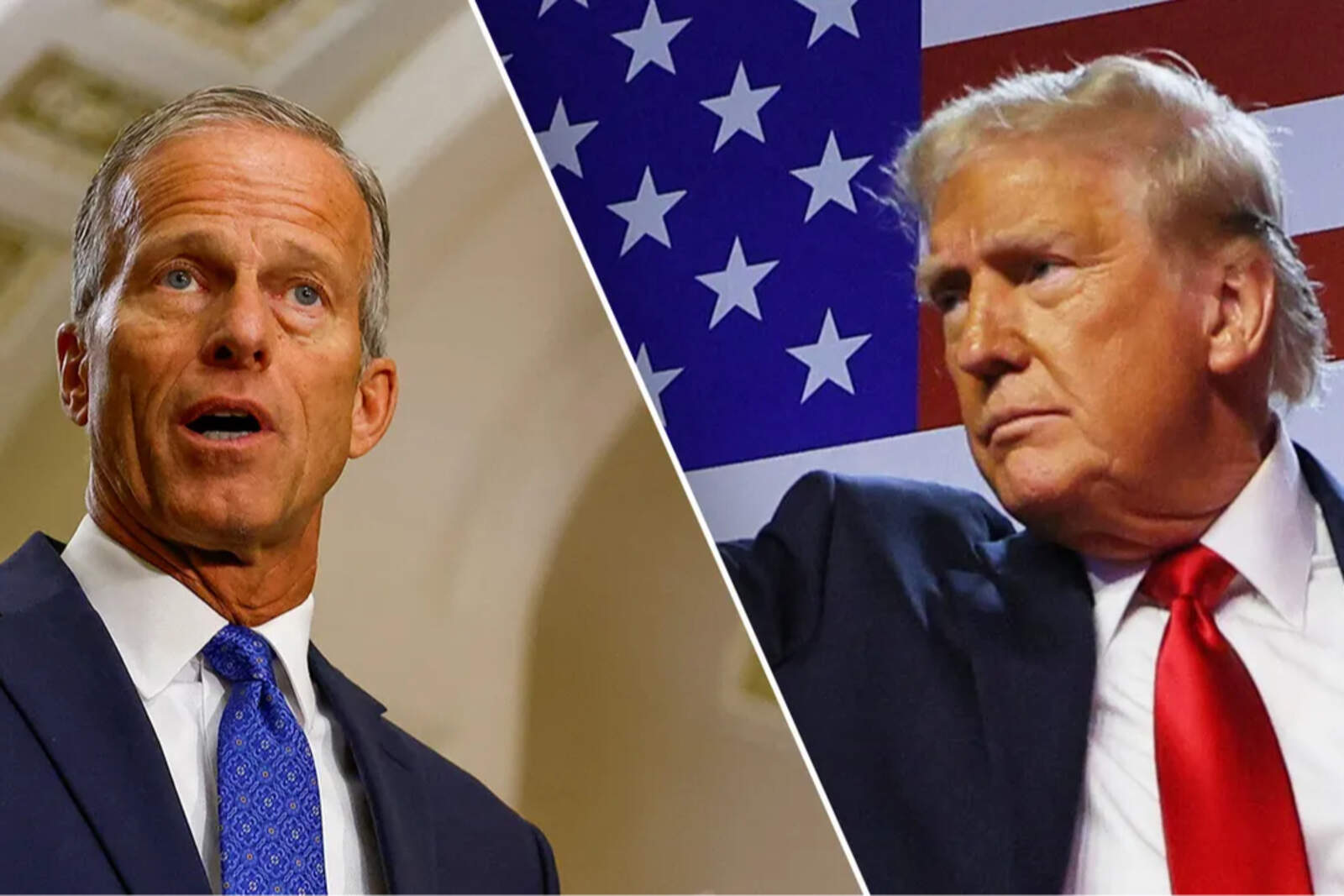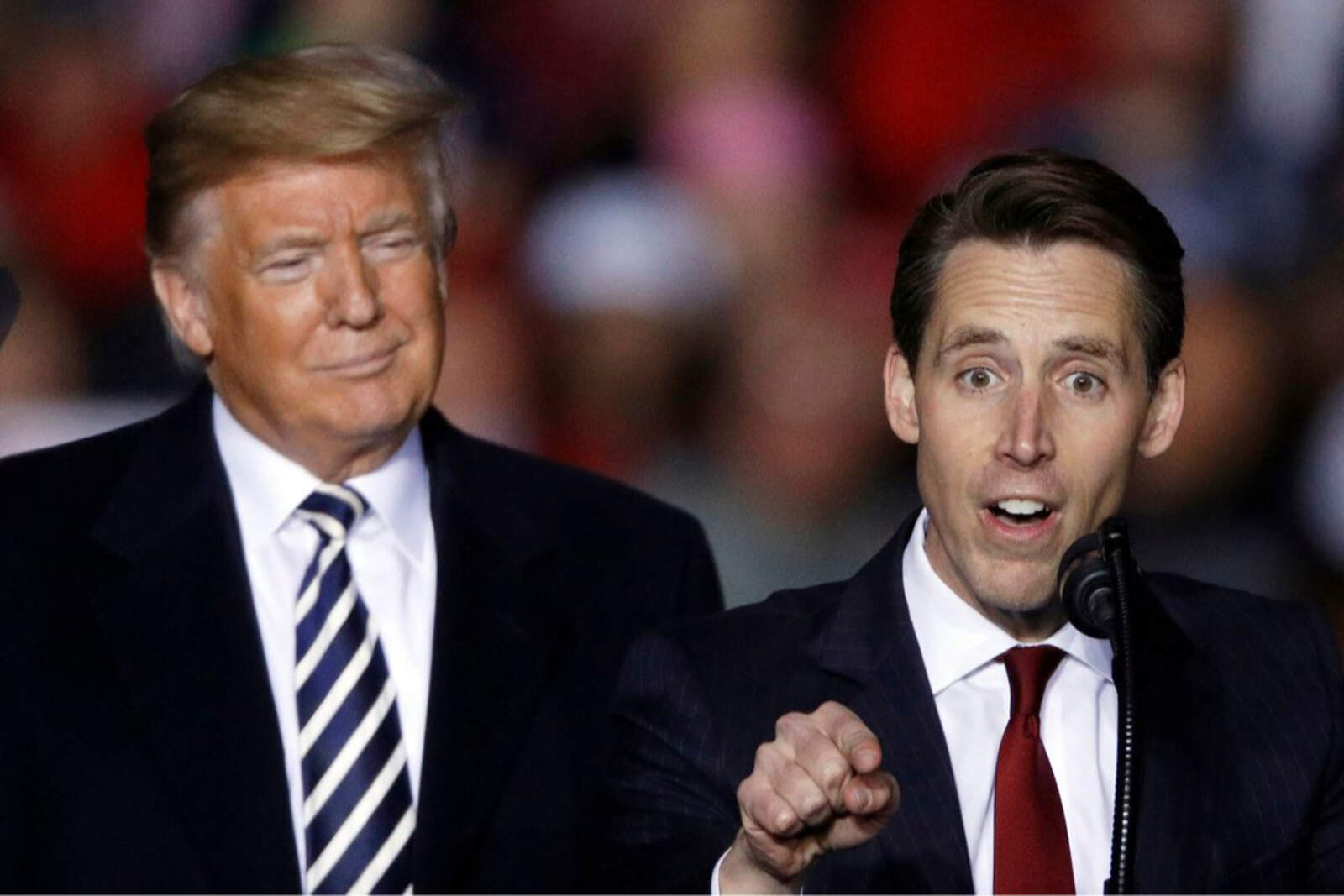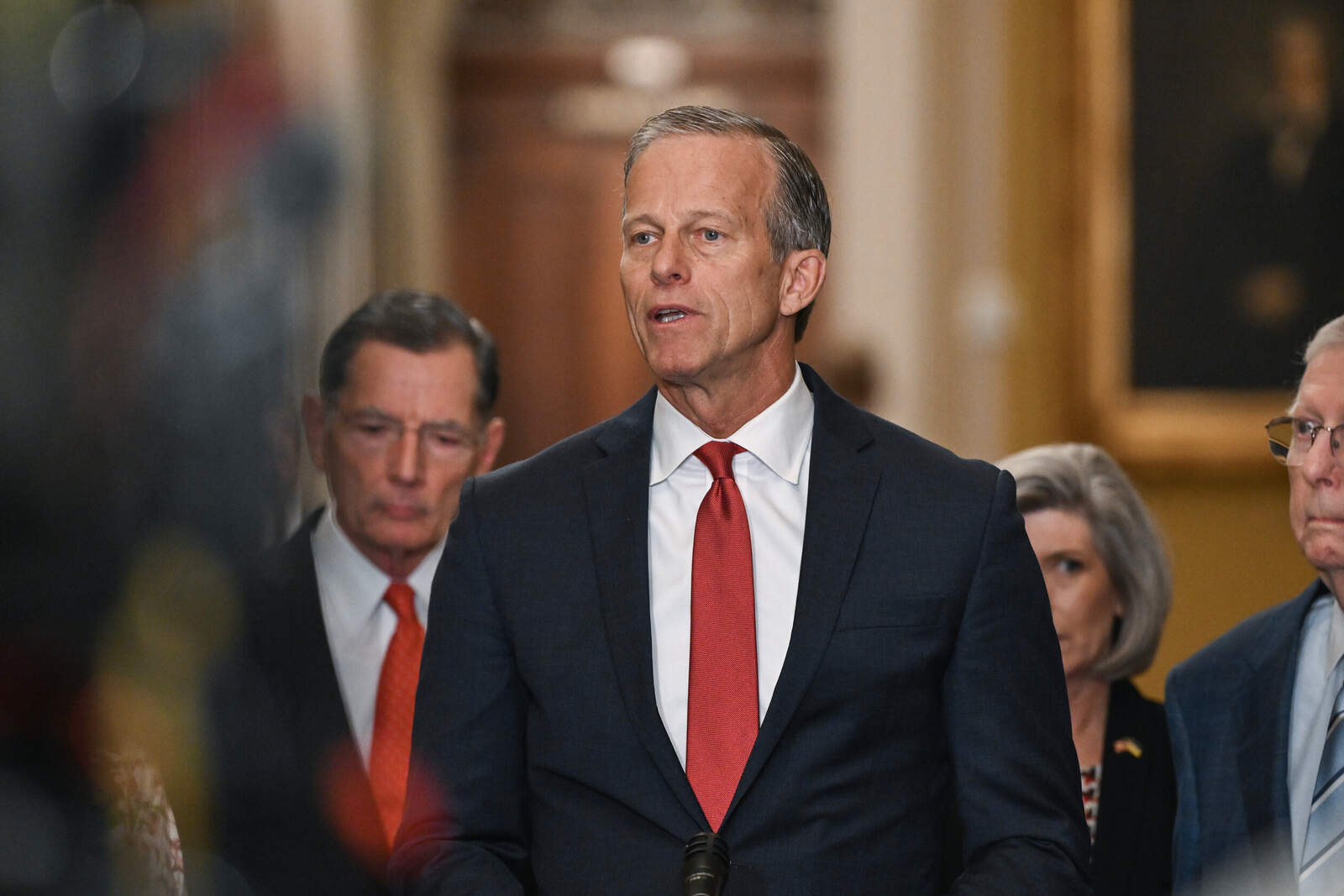In the United States Senate, what is called a "continuing resolution" awaits approval, which is a temporary measure that allows the government to continue operating with existing funding levels when Congress hasn't approved a new budget.
This resolution was approved by the House Republicans two weeks ago, and the Speaker of the House, Mike Johnson, along with other congressmen urged their Republican colleagues in the Senate on Monday to quickly vote on the budget framework approved by the House of Representatives.

The tectonic plates of the upper chamber will begin to vibrate after the Republican leader John Thune warns in a meeting with President Donald Trump and Mike Johnson that discussions within their bloc to unify a position that guarantees success in the Senate were not yet settled. In other words: internal deliberation is lacking.
At this hour in the Senate, the atmosphere has darkened. The majority led by Thune is fractured in this discussion, and the leader faces demands from senators to make more drastic cuts, putting the Medicaid health plan at the center of the storm.
The truth is that the Republican leaders of both chambers of Congress feel pressure to show rapid progress in implementing President Donald Trump's agenda.
"We are working to put everything together in a way that makes the tax cuts permanent, avoids a tax increase, and addresses the administration's key components and promises," said Senate Republican Whip John Barrasso (Wyoming).
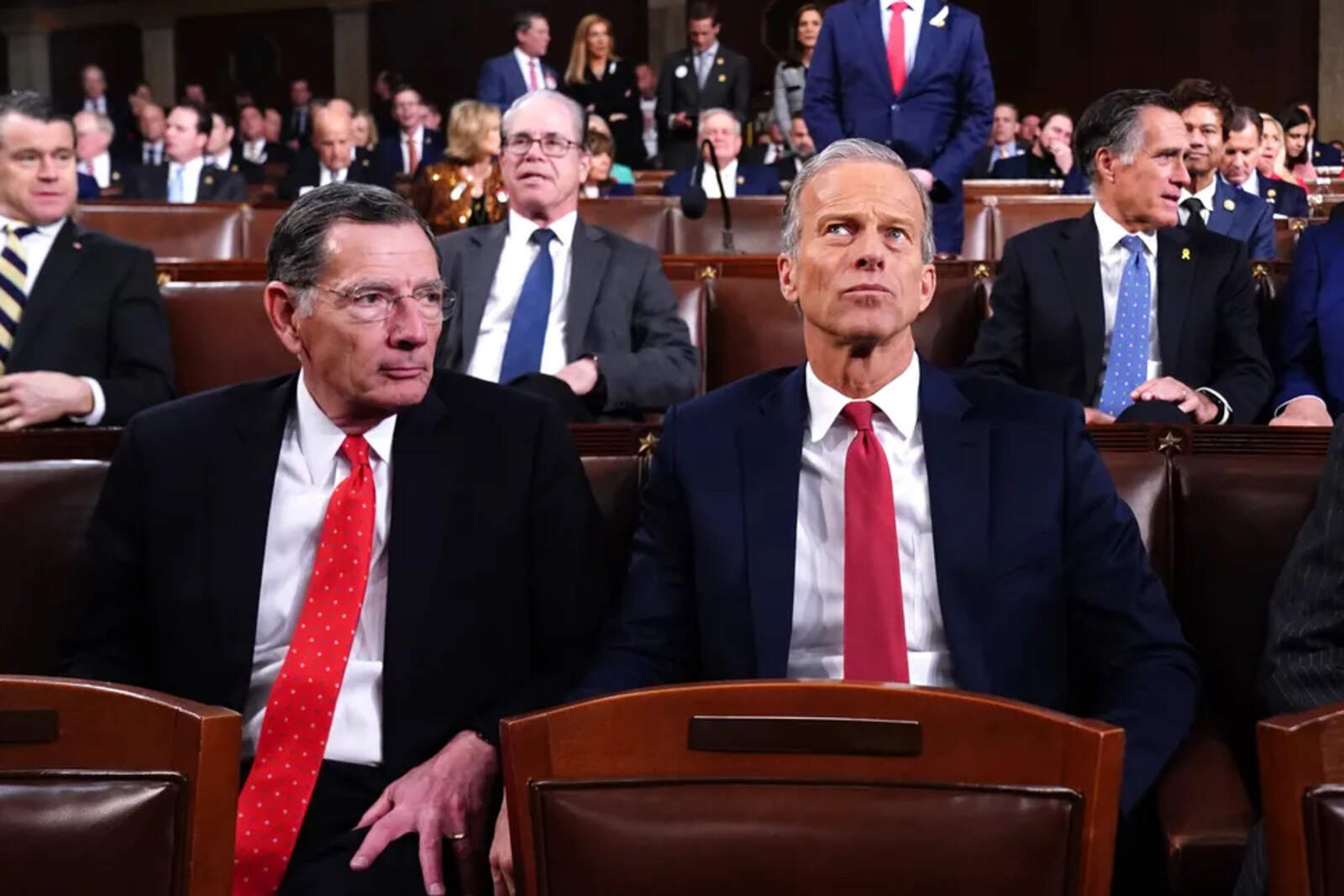
Thune, still without guaranteed support from his caucus, has sought to accelerate the vote as a way to pressure dissident senators, no later than the first week of April.
However, voting positively for the resolution as it stands today will be very difficult. Senators are already publicly stating that to support it, major changes must be made.
"They said they needed time to make a big, beautiful bill," said the Chairman of the Senate Budget Committee, South Carolina Senator Lindsey Graham, referring to the House Republicans.
"They had their chance; but the result is unfortunately inadequate," Graham criticized and then pointed to June-July as a probable deadline for Senate approval.
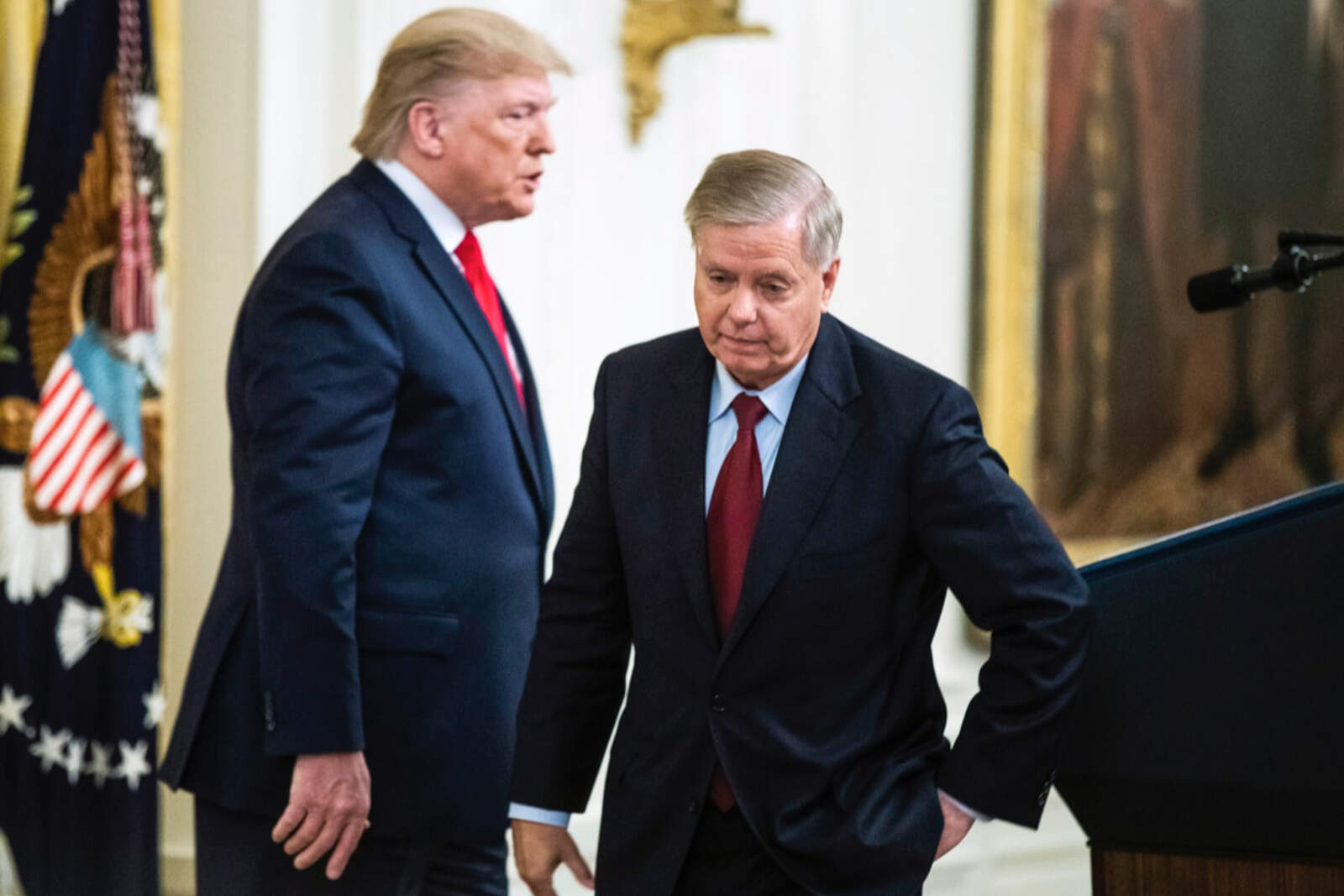
Yesterday, Trump announced his support for Lindsey Graham's reelection to the Senate, a sign that the White House is playing its part to get several of the main more radical Republican senators to support the MAGA agenda in the Senate.
Other Republican Senators, such as Josh Hawley (Missouri), John Boozman (Arkansas), and Jim Justice (West Virginia), have expressed their opposition to deep cuts in Medicaid or have emphasized the program's importance for many of their constituents.
"I wouldn't make severe cuts to Medicaid," said Hawley, who added: "I don't like the idea of massive cuts to Medicaid."

